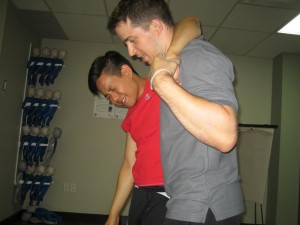Broken Rib – What Happens?
Your ribs have two key jobs:
- They shield the organs in your chest.
- They assist you to breathe by keeping an open space inside your chest
The muscles used for breathing jerk on the ribs, so breathing might be very sore when you have a cracked rib. It is vital to see a GP after a rib injury. A blow that is forceful enough to crack a rib could also damage your blood vessels, spleen, lungs, or other organs.
Symptoms Of A Broken Rib

A broken rib might cause:
- Minor to severe pain in the wounded area.
- Discomfort when you breathe.
- Pain around the fracture when somebody pushes on your breastbone.
If you can’t breathe properly because of your injuries, you might:
- Feel a shortness of breath.
- Feel worried, agitated, or scared.
- Have a headache.
- Feel lightheaded, exhausted, or sleepy.
Diagnosing A Broken Rib
Your GP will ask questions about your wound and do a physical inspection. The GP might:
- Thrust on your chest to discover where you are hurt.
- Observe your breathing and listen to your lungs to make certain air is moving in and out normally.
- Observe your heartbeat.
- Examine your spine, neck, head, and abdomen to make certain there are no other injuries.
How To Treat A Broken Rib
A fractured rib generally takes at least 6 weeks to fully heal. To help cope with the pain while the fracture heals:
- Place ice on the wounded area.
- Get enough rest.
- Take pain medication such ibuprofen. Your GP might recommend a stronger pain medication if OTC medications don’t work.
Related Video On A Broken Rib
